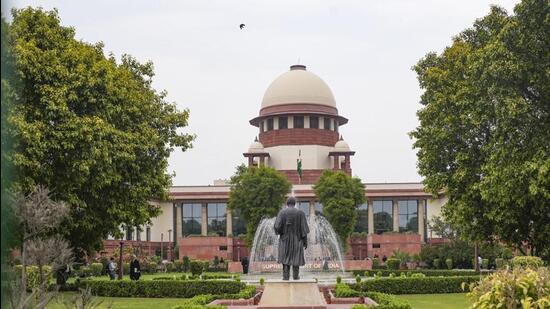970x125
The Supreme Court on Wednesday directed states and Union Territories to disburse compensation for deaths from manual scavenging within three weeks of the incident.
970x125
A bench of justices Aravind Kumar and NV Anjaria passed the order after monitoring the implementation of its directions passed on October 20, 2023, which required all states and UTs to take all steps necessary to end the inhuman practice of manual scavenging.
Through this judgment, the court enhanced the compensation amount payable to kin of those who died cleaning sewers or drains from ₹10 lakh (applicable from 1993) to ₹30 lakh. However, the judgment did not specify whether it is to be paid for deaths which took place in the past.
Pending consideration of this issue, the bench in its order on Wednesday said, “This court having passed an order of compensation and on quantum, the question whether ₹10 lakh or ₹30 lakh is to be paid is still at large, we do not find any reason why states and UTs should not pay at least ₹10 lakh.”
The court further directed the amount to be disbursed within three weeks, failing which the concerned secretary (of the public works department) will have to appear before the court.
The SC further hinted that if the death has taken place pursuant to the court’s judgment, the concerned state or UT shall be required to pay the amount fixed by the top court.
In addition, in case of disabilities suffered by sewer victims, the state/UT shall be liable to pay a minimum compensation of ₹10 lakh. Further, if the disability is permanent, the minimum compensation payable was fixed at ₹20 lakh.
Senior advocate K Parameshwar assisted the court as amicus curiae in the case.
The judgment even required the authorities in every state and UT to take measures for the rehabilitation of the victims and their families. The kin of the victims were to be provided scholarships and skill development training.
The directions of the court came on a public interest litigation filed by one Balram Singh who sought implementation of the provisions of Employment of Manual Scavengers and Construction of Dry Latrines (Prohibition) Act, 1993 as well as the Prohibition of Employment as Manual Scavengers and their Rehabilitation Act, 2013.
The court noted that despite these laws, its implementation remained on paper and directed the Union government to take appropriate measures and issue directions to all statutory bodies, including corporations, railways, cantonments, as well as agencies under its control, to ensure that manual sewer cleaning is completely eradicated in a phased manner.
The judgment recorded that at least 347 people died while cleaning sewers and septic tanks in India in the last five years with Uttar Pradesh, Tamil Nadu and Delhi accounting for 40% of these deaths, according to government data cited in the Lok Sabha in July 2022.
970x125

